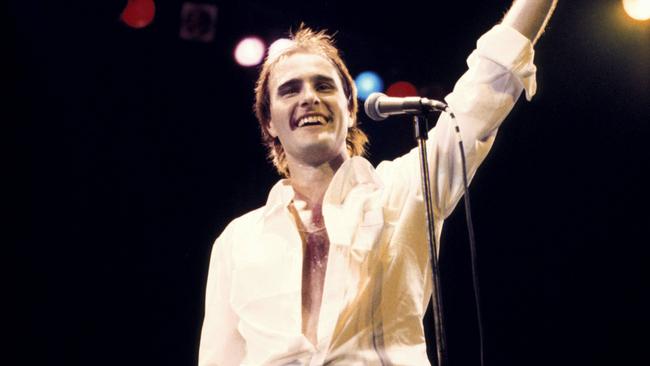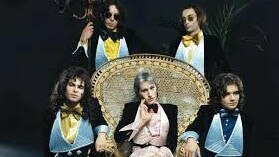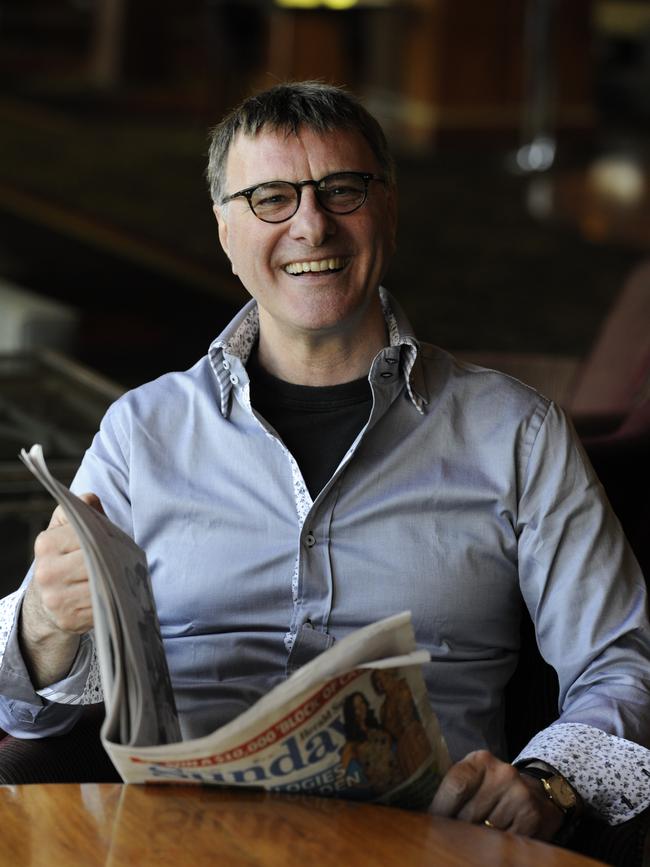Swaggering Steve Harley created rare music still loved to this day
He wasn’t Cockney and he wasn’t really a rebel, but Steve Harley had a swaggering self-confidence and he proved himself right.

Steve Harley had an early interest in music, playing violin and guitar, and spent long stretches in hospital with polio during which he deep dived into the words of Ernest Hemingway, John Steinbeck and DH Lawrence.
With typical south London cockiness be blagged his way on to a newspaper and became a cadet reporter on a group of Essex and east London mastheads. But he was fussy about what stories he would write, turning down jobs from his chief-of-staff until they turned him down and he was booted.
Always confident, he entered the London folk scene and started writing songs – unusual lyrics he imagined would be performed in a style the grandeur of which only he fully understood. One was Sebastian, a “gothic love song” he tried on the public while busking around London in 1972. It went for seven minutes, but no one ever stuck around to hear it all.
He formed a band and called it Cockney Rebel, and it recorded Sebastian as its first single. It was expensively backed by a 50-piece orchestra with a grand choral crescendo – it is mightier than Bohemian Rhapsody, if a little self-important, like its author.
Reviewers swooned. Even the edited version was too long for radio, but more adventurous stations through Europe played it and was a hit in Belgium, Holland and Germany. Harley’s pompous newspaper claim that he felt “like God touched me” annoyed his band, and the music press.

The record company had cold feet about the signing, so Harley quickly turned around Judy Teen, a lightweight but clever song in the manner of Roxy Music that shot to No.5 and on the back of it the band toured Britain.
But Harley’s insistence that the group stay in luxury hotels each night cut into the band’s earnings and annoyed his fellow musicians. As sole songwriter he was earning from the singles and albums, but the others relied on live performances. They demanded a meeting with Harley at which they insisted they also be allowed to write songs. Their “little posse of ultimatums” annoyed Harley, who refused.
A second single, Mr Soft, stalled and the boys walked out. In bitterness, Harley wrote Make Me Smile (Come Up And See Me) – imagining a day soon when they would come back begging.

It was a No.1 hit in Britain in 1975 and did well across Europe, managed No.17 in Australia and charted in the US. But over the past half-century it has been covered 120 times and used in films and advertisements (including one for Viagra).
Its six dramatic pauses and Jim Cregan’s tricky acoustic guitar break (Harley never had a lead guitarist) make the song irresistible.
And for many Harley is considered a one-hit wonder. His performance of the song during a 2016 episode of RocKwiz on SBS featured a terrific rendition of the guitar break by the Black Sorrows’ James Black, who grabbed the instrument while sitting at the keyboard he was also playing that night. After the traditional one-second pause ended, Harley stopped the song completely, turned to Black and gave him a well-earned thumbs up. It brought down the house.
Cockney Rebel’s first three albums – Human Menagerie, Psychomodo and The Best Years of Our Lives – were the confident steps of a musician who had absorbed Bowie, had been touched by the waning glam while pitching his compositions between the lyrical prog-rock adventures of Genesis and the cigarette-case sophistication of Roxy Music. They have been re-evaluated and are seen today as classics of the era. Of any era.
The swaggering, sometimes abrasive Harley calmed down over years and matured into a respected older statesman of the sometimes derided 1970s.
Cockney Rebel’s bass player across the first two albums was Paul Jeffreys, who had left with the others. He went on to Be Bop Deluxe and married late in 1988. Heading off to America for his honeymoon on December 21, 1988, he was killed above Lockerbie in the bombed Pan Am flight 103 (The Sex Pistols’ Johnny Rotten hadn’t packed in time and missed the flight).
If you caught a Steve Harley show in recent decades, he would end with a resplendent Sebastian. Everyone knew he’d be back to play Come Up And See Me. But, Harley, who died from cancer this week, would delete the song’s sting by dedicating it to Jeffreys, after which it had a completely different meaning.




To join the conversation, please log in. Don't have an account? Register
Join the conversation, you are commenting as Logout